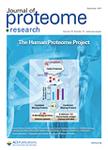版权所有:内蒙古大学图书馆 技术提供:维普资讯• 智图
内蒙古自治区呼和浩特市赛罕区大学西街235号 邮编: 010021

作者机构:Indian Inst Technol Dept Biosci & Bioengn Mumbai 400076 India Indian Inst Technol Ctr Res Nanotechnol & Sci Mumbai 400076 India Univ Allahabad Fac Sci Dept Zool Mol Om Lab Prayagraj 211002 India St Ignatius Coll Lane Cove NSW 2066 Australia Kasturba Hosp Infect Dis Mumbai 400011 India Indian Inst Technol Dept Elect Engn Mumbai 400076 India
出 版 物:《JOURNAL OF PROTEOME RESEARCH》 (J. Proteome Res.)
年 卷 期:2025年第24卷第2期
页 面:762-776页
核心收录:
学科分类:0710[理学-生物学] 071010[理学-生物化学与分子生物学] 081704[工学-应用化学] 07[理学] 08[工学] 0817[工学-化学工程与技术]
基 金:Merck Department of Biosciences and Bioengineering CSIR [BT/INF/22/SP23026/2017] DBT MHRD
主 题:SARS-CoV-2 COVID-19 peptide microarray z-score Mann-Whitney U test Kruskal-Wallis test epitope IgG immuneresponse mutation cross-reactivity
摘 要:This study aimed to elucidate the complexity of the humoral immune response in COVID-19 patients with varying disease trajectories using a SARS-CoV-2 whole proteome peptide microarray chip. The microarray, containing 5347 peptides spanning the entire SARS-CoV-2 proteome and key variants of concern, was used to analyze IgG responses in 10 severe-to-recovered, 9 nonsevere-to-severe cases, and 10 control case (5 pre-pandemic and 5 SARS-CoV-2-negative) plasma samples. We identified 1151 IgG-reactive peptides corresponding to 647 epitopes, with 207 peptides being cross-reactive across 124 epitopes. Nonstructural protein 3 (nsp3) exhibited the highest number of total and unique epitopes, followed by the spike protein. nsp12 had the most number of cross-reactive epitopes. Peptides from the spike protein and nsps 2, 3, 5, and 13 were notably associated with recovery. Additionally, specific mutations in SARS-CoV-2 variants were found to alter peptide immunoreactivity, with some mutations (e.g., G142D, L452R, and N501Y) enhancing and others (e.g., R190S and E484 K) reducing immune recognition. These findings have critical implications for the development of diagnostics, vaccines, and therapeutics. Understanding the distribution of epitopes and the impact of viral mutations on antigenicity provides insights into immune evasion mechanisms, informing strategies for controlling COVID-19 and future coronavirus outbreaks.